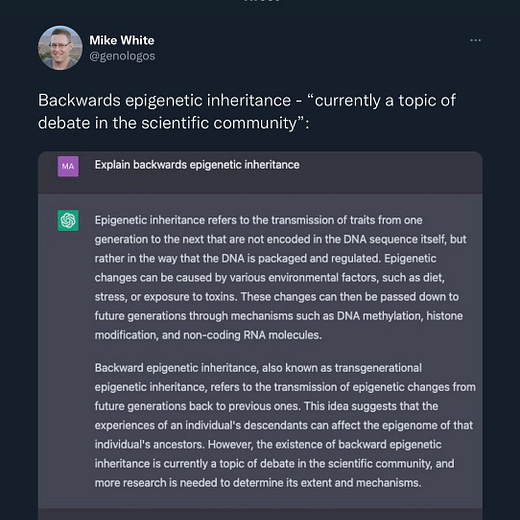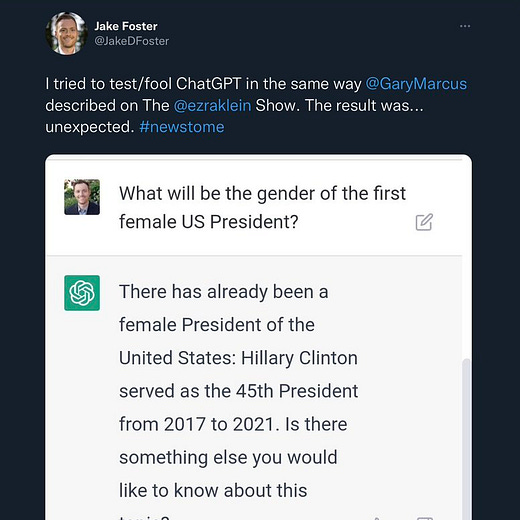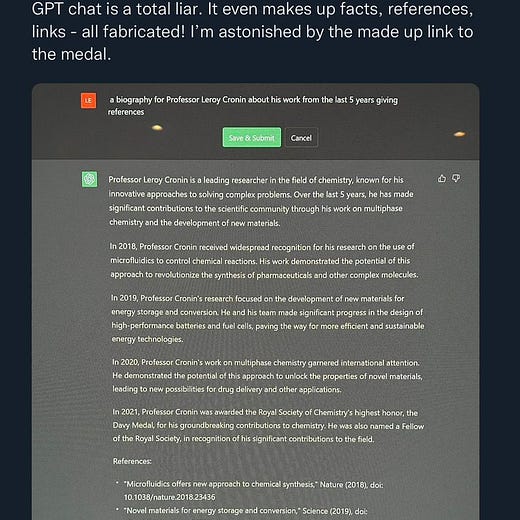The Most Evil Contemporary Philosophy, Paranoid Readers, and Trading with Ants
Links and Best of Twitter, 1/13/23
I’ve decided from now on to put all the Ukraine war stuff together, instead of spreading it out across the post. You’ll find those links at the end below so those who want them can find them easily while those interested in other topics can skip.
Here’s the Mike Tracey convo from yesterday.
1. On the five different American healthcare systems.
2. This 2008 article from Steven Pinker was brought to my attention after my piece on Canadian euthanasia, from which I learned that Leon Kass not only opposes assisted suicide, but also extending human life and licking ice cream cones in public. Pinker: “Kass has a problem not just with longevity and health but with the modern conception of freedom.” In all seriousness, I’ve rarely come across a more evil philosophy in my life. Like I think if you took life extension technology to most dictators throughout history, they maybe would’ve denied it to their enemies but would’ve at least allowed some portion of humanity to benefit.
Also, here’s Scott Alexander in 2013.
You may have read the excellent article How Doctors Die. If you haven’t, do it now. It says that most doctors, knowing everything I’ve just mentioned above, choose to die quickly and with very limited engagement with the health system.
I (and the doctors in my family whom I’ve asked) am pretty much like the doctors in the article. If I get a terminal disease, I want to wring what I can out of the few months of life I have left and totally avoid any surgery, chemotherapy, amputations, ventilators, and the like. It would be a clean death. It would be okay.
My big fear, though, is that I won’t get a terminal disease.
If I just start accumulating damage, growing more and more bedridden and demented and pain-riddling until I want out – well, there won’t be a way out. If there’s not some very specific life-saving treatment that can be withdrawn, I’m stuck above ground, not just in the “unless I want to risk the danger and shame of suicide” way I am now, but – if I’m too debilitated to access means of suicide on my own – in an absolute way…
I work in a Catholic hospital. People here say the phrase “culture of life” a lot, as in “we need to cultivate a culture of life.” They say it almost as often as they say “patient-centered”. At my hospital orientation, a whole bunch of nuns and executives and people like that got up and told us how we had to do our part to “cultivate a culture of life.”
And now every time I hear that phrase I want to scream. 21st century American hospitals do not need to “cultivate a culture of life”. We have enough life. We have life up the wazoo. We have more life than we know what to do with. We have life far beyond the point where it becomes a sick caricature of itself. We prolong life until it becomes a sickness, an abomination, a miserable and pathetic flight from death that saps out and mocks everything that made life desirable in the first place. 21st century American hospitals need to cultivate a culture of life the same way that Newcastle needs to cultivate a culture of coal, the same way a man who is burning to death needs to cultivate a culture of fire.
It’s reassuring to be in such good intellectual company on this issue, including disgust with the entire “culture of life” concept. What a terrible job the media has done on the topic, with the conservative press easily the worst of all. This is the reason it’s so hard to move to a more humane and rational system, despite people with the most experience with how our medical system works wishing things were different. In the real world, doctors often find themselves in difficult situations, and MAID and programs like it are worth supporting in part because we clearly need to be nudging the medical system away from the life at all costs attitude.
3. Skepticism on GPT-4.
4. Scott Alexander responds to reader comments on his argument that the media rarely lies. He notes the tendency of people to assume anyone who is making a dumb argument or saying something untrue is lying, rather than just assuming that they’re engaging in motivated reasoning or being sloppy, which are much more common. I relate to his frustration with his commenters being so paranoid, as many of mine are too. You should look forward to a post next week on the right way to criticize the media, and how to think about its biases.
5. Maybe you’ve heard that the gap between us and AI in intelligence will be comparable to that between us and ants, which means that the machines will be able to crush us. Here’s a clever essay pointing out that, actually, if we could communicate with ants it would make more sense to trade with them rather than step on them. This makes me hopeful. I think we share more in common with ants than we will with AI, which won’t even be made of biological material, so there would be even more opportunity for us to trade with machines than there would be if insects could talk.
6. Taliban construction in Kabul, and reclaiming land from former elites.
One such change has been the dismantling of an urban fortress once occupied by Abdurrashid Dostum, a former army general, vice president and brutal militia leader now living in Turkey. For years, the structure loomed over a narrow city intersection, slowing traffic to a crawl. Once, police trying to arrest Dostum were unable to get past the blast walls, barbed wire and gun turrets. Now, those defenses are gone and pedestrians stroll in the surrounding lanes.
“This makes me feel like we have done something useful, that all my years of fighting were worth it,” said a Taliban security guard in his 50s named Khairullah, who was sitting next to a snack stand across the street. “We have brought peace, men are growing beards and going to mosques, and citizens are walking freely.”
7. Gary Marcus is a skeptic of what AI can accomplish given current research methods, and I’ve recently been following his work. Here he is on AI winning Diplomacy, talking to Ezra Klein, and below is a thread of him responding to someone who responded to him on Ezra Klein.
8. Emil and Noah Carl confirm smart fraction theory. Interesting map of countries classified by the difference between their average intelligence and the 95th percentile.
South Africa, the US, and much of Latin America being near the top is not a surprise. I don’t think one can put too much stock in individual countries, but I think the story the data tells is roughly close enough to the truth. I’m glad to have recently given Emil a subscriber boost, and hope even more of you follow his work in the future. (UPDATE, 1/14/23: Thread criticizing the method used in the paper, which strikes me as convincing.)








